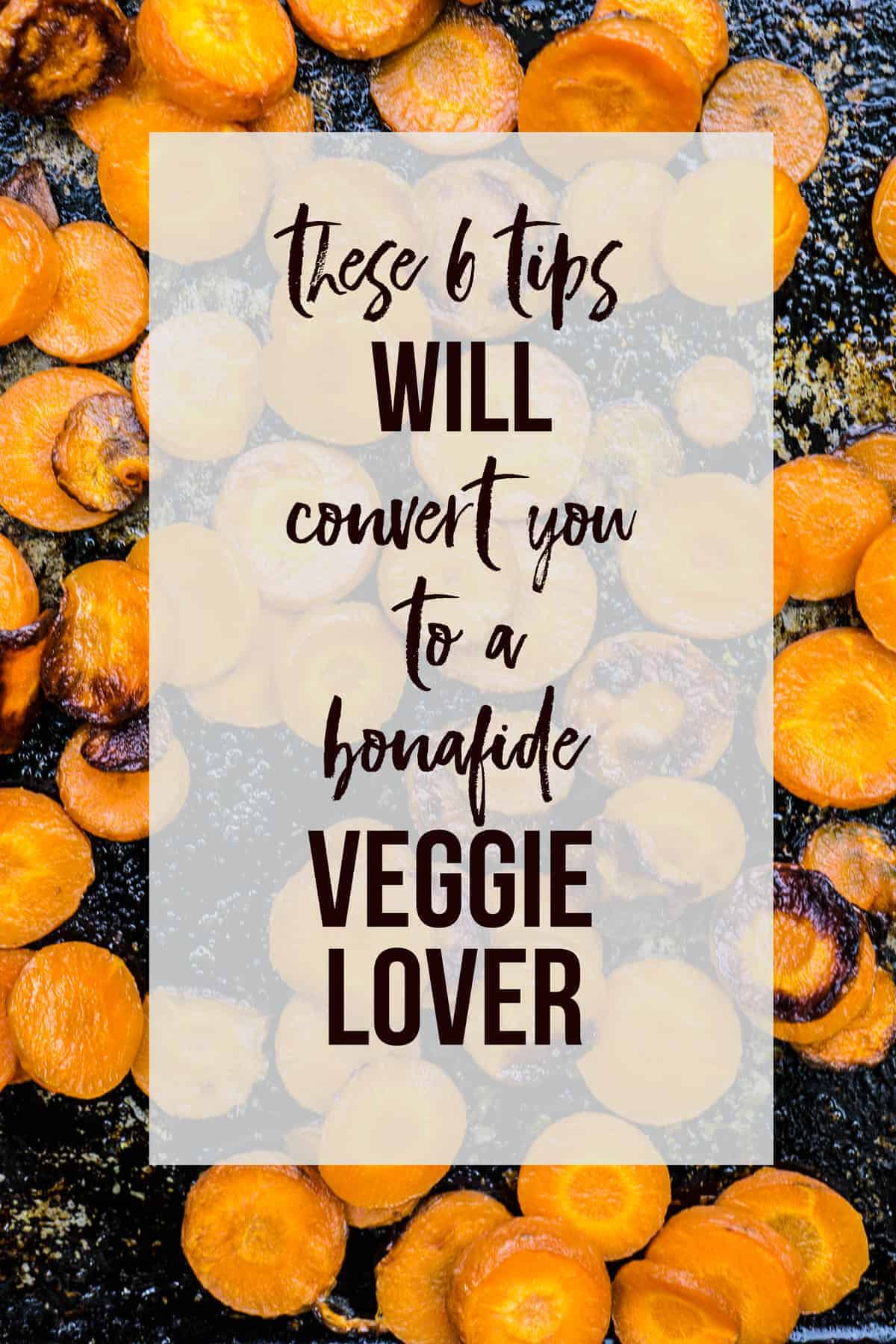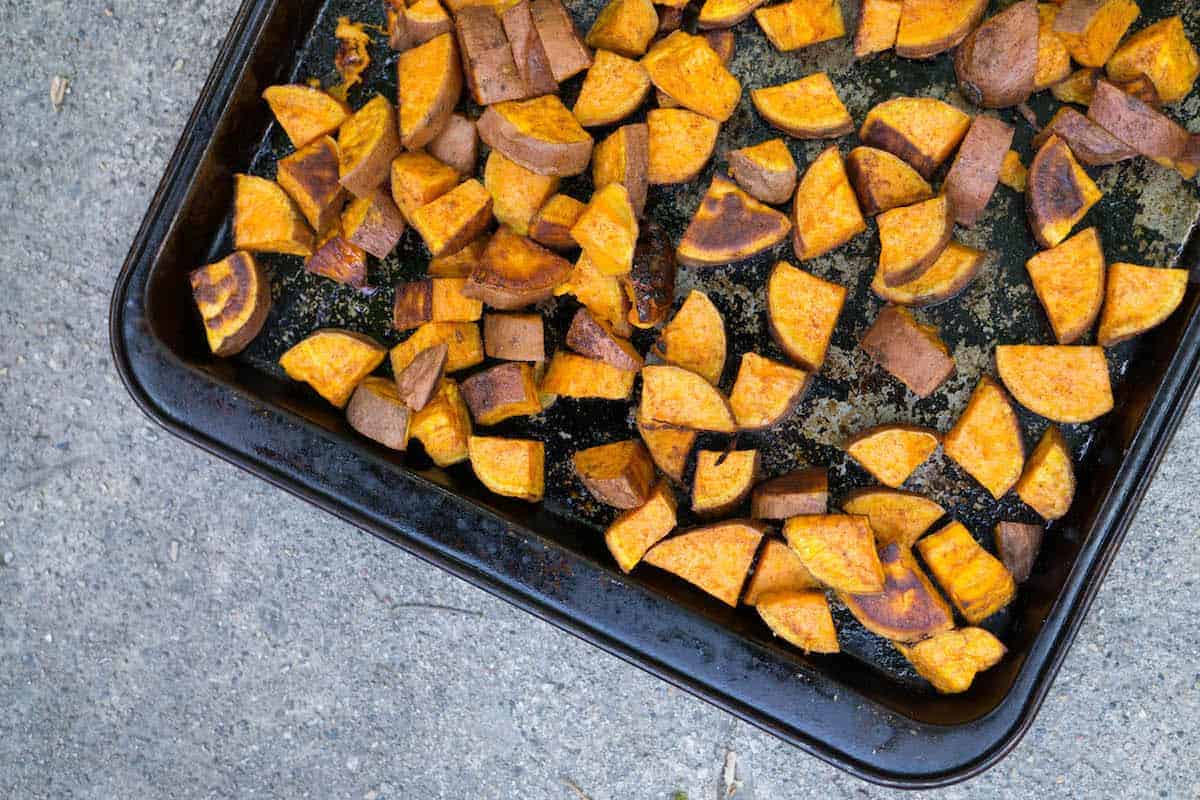
these 6 tips will convert you to a bonafide veggie lover
“There is nothing you can say that will get people to eat more veggies,” says chief industry analyst Harry Balzer in this NY Times article. “Before we want health, we want taste.”
[x_pullquote cite=”Harry Balzer” type=”right”]Before we want health, we want taste.[/x_pullquote]
It’s true that telling people to eat more vegetables appears to have little effect on their diet. But there’s also a lie hidden in Balzer’s statement: that vegetables are less delicious than other foods.
This lie seems almost universally accepted, even assumed. Vegetarians are given our sympathies. A meatless dish is seen as a compromise.
There’s no need for this dichotomy between health and taste. Veggies do not need to be a food we force ourselves to choke down. Nutritious can be delicious!
There are six easy ways to make veggies a wonderful treat for the tongue. But the first step to accepting this possibility happens in the mind.
Nutritious Is Delicious
To accept the truth about veggies, you may have to undo years of programming. You’re used to thinking veggies aren’t likeable, they’re just a food you’re supposed to eat to be healthy.
If you think you aren’t going to like them, you won’t. So the first thing you must do is open your mind to the possibility that veggies can, in and of themselves, be tasty!
Studies show that taste preferences are a learned behaviour. Anybody can learn to like veggies, even you! Just give it some time. It can take 15-20 tastes with an open mind before your taste buds will admit they were wrong initially.
This needn’t be a foreign concept. Admit it, did you like coffee the first time you had it? Wine? Beer? There are many tastes we develop over time. These are things that we expect to like, because everybody else does, so we keep trying them with that open mind until we like them.
So, decide now to approach veggies as if it’s something new that all your friends are loving. No peer pressure, no timeline, just a genuine curiosity about this new type of food everyone’s raving about.
Of course there’s more to it than just mind games. The tongue is a major factor, and a lot depends on how a food is prepared. Grapes can be made into a fine, delicious wine, or into a bitter, rancid mixture… vegetables are no different. So use these flavour enhancers and cooking techniques to surprise yourself with how delicious veggies can be.
1) Don’t be afraid of oil. As a teen I lived with a vegetarian family in Germany, on a school exchange. I was shocked to find that I actually enjoyed most of their food! The dad let me in on a secret. The key to vegetarian cooking is in the fat, he told me. Many flavour compounds are fat soluble, so they NEED a bit of fat for the flavour to come out. Meat is naturally veined with some fat, so meat dishes don’t need extra oil. Veggies are low in fat, so throw in a glug of olive oil or a pat of butter! Additionally, some of the vitamins in vegetables are fat soluble. A source of fat can help your body absorb a lot of the nutrients from those vegetables!

2) Snip some herbs. Think thyme, oregano, basil, dill, parsley, and cilantro. These plants pack a flavourful punch. Fresh herbs have the most potent and delicate flavour, but dried herbs will work as well. (Speaking of snipping, I just got these herb scissors for my birthday and they’re going to make my life 5x better! I’m so excited to use them!)

3) Throw in the garlic. This aromatic is universal to all ethnic cuisine. Garlic adds richness and earthiness to dishes. Raw garlic can be a bit sharp, but when roasted or sautéed it provides a lot of flavour.

4) Toss with a vinaigrette. Vinaigrettes have a pleasantly acidic flavour that balances any bitterness found in uncooked vegetables. Salads or uncooked side dishes taste great with any vinaigrette. There are many different vinegars to choose from: balsamic, apple cider, red wine, and the list goes on.
 5) Sprinkle with cheese. A little cheese can go a long way. The bitterness of broccoli disappears when smothered in a cheese sauce. Roasted veggies with parmesan have a rich umami flavour (umami means “delicious” in Japanese and is one of the five flavours our tastebuds detect). Of course, cheese is a higher calorie choice, but it can be a valuable tool in your journey towards loving vegetables. Use it in moderation, or if necessary, use a lot of it for the time being, as a stepping stone to get you comfortable with veggies.
5) Sprinkle with cheese. A little cheese can go a long way. The bitterness of broccoli disappears when smothered in a cheese sauce. Roasted veggies with parmesan have a rich umami flavour (umami means “delicious” in Japanese and is one of the five flavours our tastebuds detect). Of course, cheese is a higher calorie choice, but it can be a valuable tool in your journey towards loving vegetables. Use it in moderation, or if necessary, use a lot of it for the time being, as a stepping stone to get you comfortable with veggies.

6) Turn up the heat and roast. When foods with carbohydrates and proteins are exposed to high dry heat, nifty chemical responses occur. Be prepared to love these reactions, called “the Maillard reaction” and “caramelization.” They’ll turn ordinary vegetables into aromatic bundles of joy, with caramel overtones. Try this recipe for Ginger Beef with Veggies which is a sure hit!
 Learning to prepare vegetables in a way that you can love is an investment with life-long dividends. The health benefits are endless, but they are not the only reason to expand your pallet. Without an enjoyment of this wonderful food, there’s simply something missing from your life!
Learning to prepare vegetables in a way that you can love is an investment with life-long dividends. The health benefits are endless, but they are not the only reason to expand your pallet. Without an enjoyment of this wonderful food, there’s simply something missing from your life!
[share title=”Share This Article” facebook=”true” twitter=”true” google_plus=”true” linkedin=”true” pinterest=”true” reddit=”true” email=”true”]


Leave a Reply